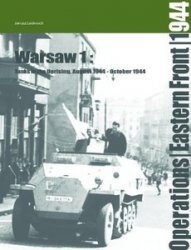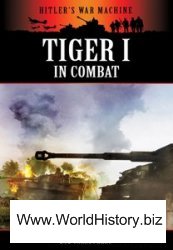The Votes are a Finnic-speaking people, a few of whom still live in the present-day St. Petersburg region near the Gulf of Finland in northwestern Russia (see Finno-Ugrians; Russians: nationality). Because their homeland was formerly known as ingria, they are sometimes referred to as Ingrians, as are the Izhorians, their neighbors near the gulf, and the Ingrian Finns, who migrated to the region from Finland. The Votes’ native name is Vadjalain, spelled variously, or Maavatchi for “Votic people.” Along with other Finnic peoples, they have been referred to as Chuds, or Southern Chuds, by the Russian Slavs; the Veps are sometimes called Northern Chuds. The name Votes is from the Balto-Finnic word vakja, meaning “peg” or “wedge.”
Origins
The earliest archaeological findings concerning the Votes are from the Izhorian plateau, between Kingissepp and Gachina (fourth-seventh centuries C. E.). Sometime in the first millennium they separated from the northern Esths, who remained on the east side of the River Narva and Lake peipus. They never formed a separate nation or administrative unit although they were located near major east-west commercial routes and were involved in trade.
In literary records the Votes (Vods) are considered the oldest people in Ingria.
Votes time line
VOTES
Location:
Northwestern Russia near Gulf of Finland
Time period:
Fourth century C. E. to present
Ancestry:
Finno-Ugrian
Language:
Balto-Finnic (Finnic)
C. E.
859 Encroaching Slavic tribes found Novgorod; begin forced tribute of Votes.
11th century Votes mentioned in writings by Slavs.
13th century Votes fight as part of Novgorod military against Swedes and Teutonic Knights.
1323 Treaty of Pahkinasaari (Oreshek) between Russia and Sweden creates peace in Ingria.
1478 Grand Principality of Muscovy defeats Novgorod; conquered principality is divided into five parts, of which northern is called Votic Fifth.
1484 and 1488 Large numbers of Votes deported to central Russia and replaced by Russian colonists.
1703 Peter I the Great of Russia annexes Ingria.
1939 Votes last mentioned in Russian census.
LANGUAGE
The Votic language is in the Balto-Finnic group of Finnic in the Finno-Ugric language family. Of the various Finnic languages, it most resembles Estonian. The main dialects are classified as Western and Eastern, but Kukkusi and Kreevin dialects are also distinguished.
HISTORY
The Votes along with other Finnics became tributary to the Slavs of Novgorod in 859 c. e. An early written mention of the Votes dates to the 11th century, when Prince Yaroslav the Wise, the ruler of Novgorod, recorded their name in an order concerning roads and bridges. The ancient Novgorodian land Vod was called Ingermanland by the Swedes, Anglicized to Ingria. It is said to be named after Ingegard (Ingigerd), the daughter of the Swedish king Olof Skotkonung; she married Yaroslav the Wise in 1019.
In Livonia the whole northwestern part of the Novgorod principality was called Watland, and all the related peoples there were called Votes. The expression pagani Watlandiae, or “Watlandian pagans,” appeared in Roman Catholic writings of the 12th-13th centuries. They were also mentioned by Pope Alexander III in his papal bull to the bishop of Uppsala and by Gregory IX to the archbishop of Uppsala and the bishop of Linkoping.
In the 12th century some of the Votes merged with the Baltic-speaking LETTS. In the 13th century in 1240 and 1248 the Votes, along with the Izhorians, were forced to fight on behalf of Novgorod against Swedish forces and the mostly Germanic military and religious order the Teutonic Knights. In doing so they fought fellow Finnic-speaking peoples—Finns fighting for the Swedes, and Esths for the Teutonic Knights.
In 1323 the Treaty of Pahkinasaari (Oreshek) between Russia and Sweden defined boundaries in the region, creating peace for the Votes for a time. In 1478 the Grand Principality of Muscovy defeated Novgorod, whose territory was divided into five parts, of which the northern was called the Votic Fifth. Its border ran in the west along the river Lauga to the Bay of Narva, and in the east along the Olkhava to Lake Ladoga. Over the next years in 1484 and 1488 large numbers of Votes were deported to central Russia and replaced by Russian colonists.
In the 15 th century, in an attempt to Christianize the pagan Votes, Eastern Orthodox missionaries destroyed sacred groves and sacrificial places and performed mass baptisms. Because Votic parents were still naming their children after pagan gods and heroes the Orthodox Church caused Votic ethnic first names to be dropped from usage and replaced by Russian Christian names. However, regional church representatives reported in the 16th century that the Votes were obdurate pagans.
In 1703 Peter I the Great annexed Ingria to the Russian Empire; in 1712 St. Petersburg became Russia’s capital. Russification before and during the existence of the Soviet Union (USSR) in the 20th century led to relocation and loss of traditional culture, and the Votes population diminished. After 1939 the Votes were not recorded in the censuses, and even since the dissolution of the Soviet Empire in 1991 few individuals claim Votic ancestry
CULTURE
Economy
Votes were traditionally farmers, herders, fishermen, sailors, and traders. The making of tar, charcoal, and lime played an important part in the economy of many, as did transport work.
Art
Crafts such as making wooden vessels and earthenware, blacksmithing and shoemaking were essential parts of Votic life. They were also known for their work in wood and birch bark.
Religion: Burials
Many omens were observed during Votic funerals. If the horse pulling the casket started walking with the left leg, the next person to die would be a woman. Living men never put their left sock or shoe on first, as that sequence was reserved for dressing the dead for burial. The condition of the body in the coffin was a sign of when the next death could be expected. A stiff body indicated an interval before the next burial unless the sleigh or horse cart toppled over when returning from the graveyard, in which case another death would follow soon. A copper coin thrown into the grave would help the dead person gain a better place in the next world. There was also a custom of removing nothing from cemeteries; even the berries growing there belonged either to the dead or to the god’s birds.
At home the places that the dead body had touched were washed with soap and a rag, which was subsequently destroyed. All objects that had touched the corpse were thrown into a fire or water. Tubs where the deceased was washed were broken and thrown away as well.
The straw on which the dead body had been lying was burned on a field where people jumped over the fire singing, “Fear [go] that way; love [come] this way.” Yet there were good omens associated with a corpse in the house. Anyone who had a cyst on the arm or leg had only to touch the same spot on a dead body to promote recovery.
Throughout their history the Votes found themselves in the midst of struggles between various national powers. Although their numbers have been reduced to near extinction, a rich folk culture is still associated with them.
Votiaks See Udmurts.




 World History
World History









